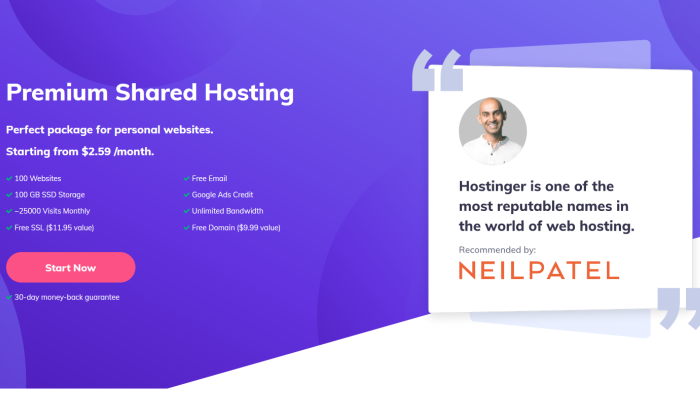5 Value-Added SEO Benefits For Your Enterprise
SEO is the number one source of leads. Prepare for the future and implement a strong SEO strategy across multiple areas of your enterprise. The post 5 Value-Added SEO Benefits For Your Enterprise appeared first on Search Engine Journal.

SEO is often the number one source of leads.
However, while most businesses understand the importance of SEO, they may not be aware of all the additional value-added benefits of enterprise SEO.
Beyond a channel in its own right, SEO can benefit your bottom line across the broader organization.
Departments that work with enterprise SEO departments benefit in many ways.
It can also help to inform sales, build brand awareness, and provide insights and value to many areas of your business.
However, there is more value beyond the SEO channel’s impressive results.
A well-executed enterprise SEO strategy can have many advantages, externally in the digital world and internally across multiple areas of the enterprise.
For example, it can help build brand awareness and distribute thought leadership.
Appearing at the top of SERPs does more for your business than you may think.
5 Value-Added SEO Benefits for Your Enterprise
1. Business Intelligence
Business intelligence (BI) has become an increasingly important aspect of enterprise SEO.
In many ways, it forms the backbone on which value-added benefits are shared across organizations – and indeed this article.
By harnessing the power of big data, BI provides insights that can help organizations increase efficiency and productivity while also better understanding their customers.
In particular, BI can provide timely insights into customer behavior and purchasing patterns, accurate tracking of sales and marketing performance, and instant alerts on customer issues and data anomalies.
This year, over 79% of marketers will look to business intelligence to help drive digital strategy and align to organizational objectives.
As the growth of big data continues to accelerate, more industries will likely adopt BI to gain a competitive edge.
But it’s not just a matter of collecting data – it’s also important to analyze that data at scale to glean insights that can help shape your digital strategy and fuel interdepartmental success.
Analyzing historical and real-time SEO data at scale, content, digital, sales, and product, can help marketers understand customer needs and preferences.
The most successful marketers will use that information to make smarter, more informed decisions about their overall marketing and go-to-market strategies to align with their business goals.
By understanding consumer behavior trends and market drivers, businesses can make strategic decisions that will help them survive and thrive in today’s ever-changing landscape.
What’s more, by using this data to track demand and market volatility, businesses can pivot in real-time to meet the needs of their consumers.
Read More On SEJ
Leading in SEO Through the Data Science Revolution: A CTO Q&A How Enterprise Search + Business Intelligence Reveal Market Pulse2. Brand Messaging And Reputation
SEO benefits your business, even if your website doesn’t rank first for every query.
By appearing on the first page of results, you can increase brand awareness and create more potential customers.
Even if searchers don’t click through to your website from the search results, they still see your brand name and become more familiar.
This increased brand awareness can eventually lead to more traffic and conversions as people remember your brand when looking for a product or service.
Look at the bigger picture and consider the value of every first-page result.
In an age where we are constantly bombarded with messages, brand awareness is becoming more important in SEO.
The relationship is symbiotic, whether you’re promoting a new product or focusing on retention.
By ensuring your site is easy to navigate, simple to search, accessible, and – critically – credible, you will have set your business up for success.
Landing on the first page of results increases visibility and means you’re more likely to be viewed as a leader in your industry. And that means more media market share.
Read More On SEJ
Reputation Management SEO: A Beginner’s Guide An SEO Breakdown of Reputation as an E-A-T Factor3. Digital User Experience
We are in a new competitive age for the customer.
Across the whole enterprise (not just Customer Success), all departments – from HR to Marketing – are under more pressure than ever to provide personalized experiences.
SEO adds great value to all parts of an organization in this area.
Seemingly small details can make a big difference in customer satisfaction, so businesses need to look for ways to improve the customer experience continuously.
SEO can help businesses understand what online users are looking for and how they can improve their digital offerings by providing insights into customer behavior.
In addition, the personalization facilitated by SEO can help enterprises create more targeted and customized experiences for their customers.
As SEO professionals focus on Core Web Vitals and page experience, collaboration across enterprise departments such as content, UX, design, and IT are bonding.
This not only benefits SEO directly but also all of the above. Marketers can track their progress and ensure they provide the best possible experience for their users.
Organizations can quickly improve their page performance and create a more positive experience for their customers.
Read More On SEJ
10 Digital Marketing Fundamentals Every SEO Pro Should Know Core Web Vitals: A Complete Guide4. Product Marketing
If you want to be successful in marketing your product, it’s essential to understand the problems that your potential customers’ problems.
Only then can you develop messaging and content that speaks to your product’s solutions
SEO provides several ways to get this understanding.
In many ways, SEO is one big user group. You can use it to engage with customers and find answers directly about their biggest challenges.
You can also use SEO data-led research to understand the challenges that people in your target market are facing.
There are a couple of ways SEO can help you with this.
First, the terms people are searching for reveal insights into questions they have, pain points they are experiencing, and aspirations they have for products. How much search volume reflects searches for a similar theme can quantify how big or small specific issues are for your audiences. Since search is one of the largest digital channels, it’s an appropriate sample size to quantify your market. SEO can also help product marketing by analyzing what Google thinks people want to see when expressing specific pain points or aspirations.Product marketers need to know the experiences that matter and the messaging that resonates with audiences. Search algorithms can do a lot of heavy lifting for you.
Their ranking factors include dwell time and aspects that eliminate results that are not useful to the user.
By looking at how the search result pages are laid out, what resources are winning high rankings, or what universal results are present – product marketers get a front-row seat for the arbitration between a customer challenge and a solution.
Organizing and structuring this interaction is a vital feature of an SEO program, and product marketers are well-positioned to use these insights.
By digging deep into your data sets and understanding the challenges your prospects face, you’ll be better positioned to market your product effectively.
5. WorkStream Support SEO Benefits
Enterprise SEOs can also help across many workstreams;
Alert sales and customer service on price changes and category rises/drops. Automate dashboards and visuals to multiple departments with data that matter to them. Help with transition and fuel optimized content for omnichannel campaigns. Reach wider audiences with offline campaign synergy (TV, Digital, Search).Conclusion
Enterprise SEO is no longer an optional part of a comprehensive business strategy – it is an absolute necessity.
Industry insiders recognize that SEO benefits the whole organization – from the insights and context it provides to optimizing content it can deliver.
By providing valuable insights into how they view and interact with your brand online across every area, enterprise marketers can prepare for the future.
And as your market share grows, so does your enterprise in general.
More resources:
8 Enterprise SEO Skills That Add Value for Your Team & Career Proven Ways To Improve Organic Marketing Workflow Efficiency Enterprise SEO Guide: Strategies, Tools, & MoreFeatured Image: Jirsak/Shutterstock

 JaneWalter
JaneWalter 































